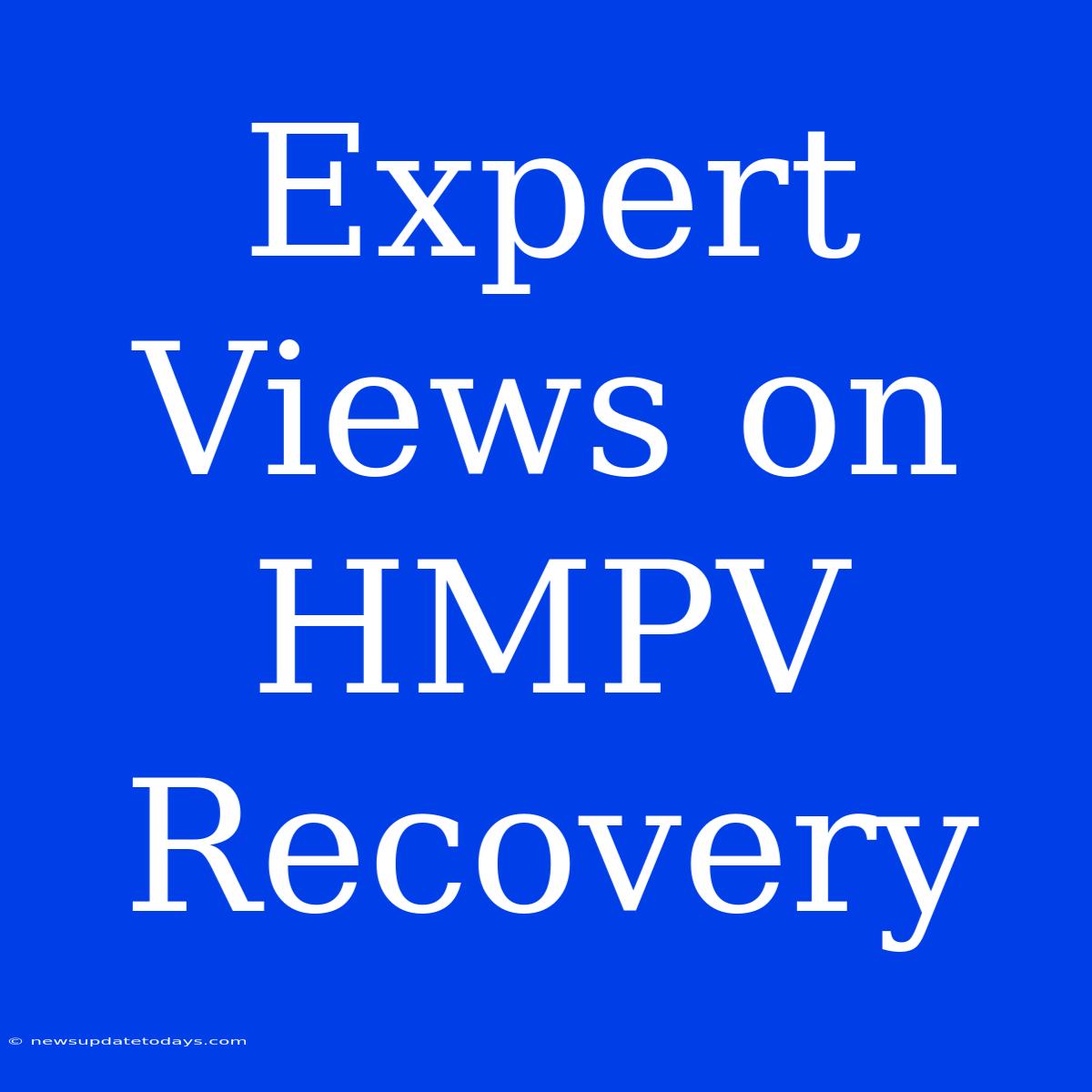Expert Views on HMPV Recovery: A Comprehensive Guide
Human metapneumovirus (HMPV) is a common respiratory virus, especially affecting young children and the elderly. While most infections resolve on their own, understanding the recovery process and potential complications is crucial. This article compiles expert views on HMPV recovery, offering insights into symptoms, treatment, and long-term effects.
What is HMPV?
HMPV is a virus similar to RSV and influenza, causing symptoms ranging from mild cold-like illness to severe pneumonia. Infection is typically spread through respiratory droplets. High-risk groups include infants, young children, older adults, and those with underlying health conditions.
HMPV Recovery: The Typical Timeline
Most individuals recover from HMPV within 1-2 weeks. However, the recovery period can vary depending on the severity of the initial infection and the individual's overall health.
Stages of Recovery:
- Acute Phase: This is the initial phase characterized by typical HMPV symptoms like cough, fever, runny nose, and shortness of breath. This phase usually lasts several days.
- Convalescence: As the virus is cleared, symptoms gradually subside. This stage can last for several days to a week or more, with lingering cough being a common symptom. Fatigue may also persist.
- Complete Recovery: Most individuals make a full recovery, with no long-term effects.
Expert Opinions on Managing HMPV Recovery:
Experts emphasize the importance of supportive care during recovery. This includes:
- Rest: Adequate rest is essential to allow the body to fight off the infection.
- Hydration: Drinking plenty of fluids helps prevent dehydration, a common complication of respiratory infections.
- Over-the-counter medications: Pain relievers (like acetaminophen or ibuprofen) can help manage fever and aches. Decongestants and cough suppressants may provide some relief, but always consult a doctor before administering these to children.
- Monitoring symptoms: It’s crucial to monitor for any worsening symptoms such as difficulty breathing, persistent high fever, or dehydration. Seek immediate medical attention if these occur.
Potential Complications and Long-Term Effects:
While most HMPV infections resolve without complications, some individuals, particularly those in high-risk groups, may experience more severe outcomes, including:
- Bronchiolitis: Inflammation of the small airways in the lungs.
- Pneumonia: Infection of the lungs.
- Whistling: A high-pitched sound caused by inflamed airways.
- Wheezing: Another indication of airway inflammation.
In rare cases, HMPV can lead to long-term respiratory issues. However, this is less common with appropriate management.
When to Seek Medical Attention:
Consult a doctor if you experience:
- Difficulty breathing
- High fever that persists
- Severe dehydration
- Worsening cough
- Chest pain
- Confusion or lethargy (particularly in older adults)
Prevention:
While there's no vaccine for HMPV, practicing good hygiene like frequent handwashing and avoiding close contact with infected individuals can significantly reduce the risk of infection.
Conclusion:
Recovery from HMPV typically involves a period of rest, hydration, and symptomatic treatment. While most individuals experience a full recovery, it's vital to monitor symptoms closely and seek medical attention if complications arise. Understanding the recovery process and potential risks allows for better management and promotes a timely return to good health. This information is for general knowledge and does not substitute professional medical advice. Always consult a healthcare provider for diagnosis and treatment.

